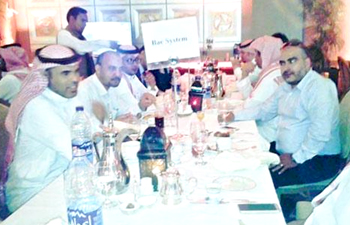 Riyadh, Jul 18: Companies and individuals are showing great generosity during Ramadan, according to many people polled here recently by Arab News.
Riyadh, Jul 18: Companies and individuals are showing great generosity during Ramadan, according to many people polled here recently by Arab News.
Monther M. Tayeb, a press relations and communications director of a multinational company in the Saudi capital, said: “Local companies and individuals show it during Ramadan. Companies give free food to their fasting employees, and non-Muslims, for iftar,” he said.
He said there are many iftar events held at homes and hotels, where people invite their friends, colleagues and acquaintances to sumptuous meals.
“Iftar is breaking the fast in accordance with the rules of the holy month of Ramadan. It’s a valued tradition in Islam and is being nurtured by Muslims in the Arab world including Saudi Arabia,” he said.
Apart from giving free food to their employees, companies also help the less fortunate in society including orphans.
One five-star hotel recently gave 80 iftar boxes to orphans under the care of the municipality in Suleimania district. A hotel spokesman said that there are plans to also provide meals for limousine drivers.
Abdullah Nasser Al-Otaibi, an account executive for a local firm, said: “Even individuals show generosity. It has become a common sight to see distributed food for individuals in the streets for iftar.”
He said this showed that people care for each other.
“They even knock on your door to give you iftar boxes containing water, dates, sweets, laban and a main meal. It goes without saying that this is an exciting aspect of the holy month of Ramadan,” said Fayez Al-Masri, an account executive for a local public relations company.
He said the generosity makes everyone in the Arab world “enjoy every moment of it and look forward to the next holy month.”






Comments
Add new comment